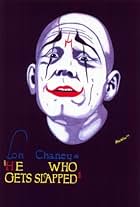The childhood, love adventures, and ordinary life of Tasio, a coal maker in rural Navarre.The childhood, love adventures, and ordinary life of Tasio, a coal maker in rural Navarre.The childhood, love adventures, and ordinary life of Tasio, a coal maker in rural Navarre.
- Awards
- 1 win & 2 nominations
Photos
Paco Hernández
- Cabo Guardia Civil
- (as Francisco Hernández)
Miguel Rellán
- Cura
- (as Miguel Ángel Rellán)
- Director
- Writer
- All cast & crew
- Production, box office & more at IMDbPro
Storyline
Featured review
Wonderful, simple story of a young lad growing up in his rural surroundings, more or less in the line of `El Sur', Erice's little masterpiece produced just two years earlier. Armendáriz achieves an intense and intimate portrait of Tasio and the people around him without any over-dramatization, using simple but effective dialogue, careful characterization, and of course the brilliant photography. Tasio learns to eke out a living making coal, really charcoal-making for domestic use. Wood is piled up into a great heap, maybe three or four metres high and up to eight metres diameter, and set alight in the inside so that it burns very slowly. The `carbonero' - Tasio - must attend this smouldering heap by climbing up on it and poking and prodding holes deep into it so that there is a minimum of ventilation. You can still find some examples of this old craft in rural parts of Spain even today.
At times the dialogue may be a little difficult because of marked regionalistic accents; although Spanish-speaking, the profound Basque influence is highly evident. The film in fact was made just outside the Basque Country (Euskadi), in the extreme west of Navarra (Navarre) around the villages of Aranarache, Eulate, Urra, Baquedano and Zudaire, villages forming the area known as Améscoa; indeed you can often see parts of the beautiful Sierra de Urbasa, its heavily wooded slopes with clear little rivers. An absolute must for those who love good walks... just 40 minutes by car from where I am now. This is not an action film: it is a beautiful portrait of rural people living rural lives with just that touch of tragedy present in these Spanish films looking back at the 50s and 60s, similar to films like `Las Ratas', `El Abuelo' and `La Lengua de las Mariposas'.
At times the dialogue may be a little difficult because of marked regionalistic accents; although Spanish-speaking, the profound Basque influence is highly evident. The film in fact was made just outside the Basque Country (Euskadi), in the extreme west of Navarra (Navarre) around the villages of Aranarache, Eulate, Urra, Baquedano and Zudaire, villages forming the area known as Améscoa; indeed you can often see parts of the beautiful Sierra de Urbasa, its heavily wooded slopes with clear little rivers. An absolute must for those who love good walks... just 40 minutes by car from where I am now. This is not an action film: it is a beautiful portrait of rural people living rural lives with just that touch of tragedy present in these Spanish films looking back at the 50s and 60s, similar to films like `Las Ratas', `El Abuelo' and `La Lengua de las Mariposas'.
- khatcher-2
- Feb 24, 2001
- Permalink
Details
- Release date
- Country of origin
- Official site
- Language
- Also known as
- Tasio, miilunpolttaja
- Filming locations
- Production companies
- See more company credits at IMDbPro
Contribute to this page
Suggest an edit or add missing content
















